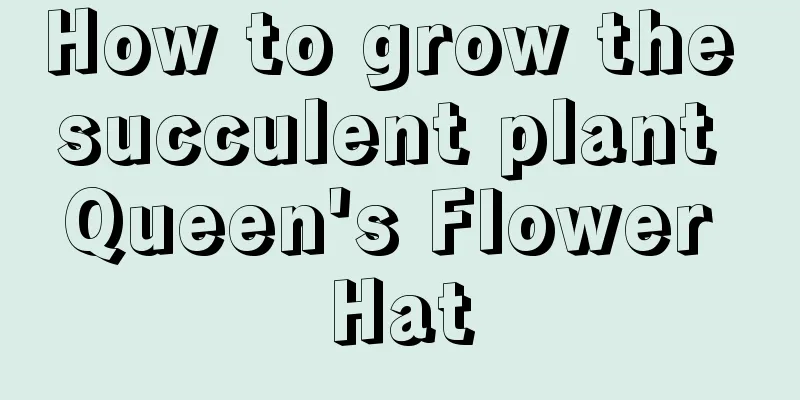Tips for growing nasturtium (how to care for and grow nasturtium)

Basic growth habits of nasturtiumNasturtium is both an ornamental plant and an edible Chinese herbal medicine. It is rumored to have the effect of clearing away heat and detoxifying. It has a wide variety of varieties, with flowers mainly in red, orange, yellow and spots. The flowers are small and delicate with a fragrance. Nasturtium prefers a warm, humid and sunny environment. It is not drought-tolerant and should not be overexposed in the summer. The winter temperature needs to be kept above 10°C. In northern regions, it needs to be brought indoors for the winter before the frost and placed on a windowsill with scattered sunlight for maintenance. How to care for nasturtium:1. Planting time Potted nasturtiums are generally available from March to June. If you purchase seeds, you need to choose the appropriate time period for sowing based on your regional environment and ornamental needs. The best temperature for sowing and seedling raising is 15-25℃, and the cultivation medium should be loose, fertile and well-ventilated. 2. Fertilization Whether it is a potted nasturtium or one that is propagated by sowing, it is not advisable to apply too much nitrogen fertilizer during the seedling stage, so as to avoid the plant growing leaves wildly without blooming. For seed-propagated seedlings, when the plant height reaches about 15 cm, it can be appropriately pinched to break the apical dominance and promote branching. If the height of the potted nasturtium you purchased directly exceeds 30 cm and the initial flowers have not yet appeared, in addition to increasing the light and applying phosphorus and potassium fertilizers, you can also consider using paclobutrazol to dwarf it. 3. Ventilation environment Nasturtium is a semi-climbing flower. When the plant height reaches about 20 cm, a support frame can be installed or a hanging pot can be used to create a height difference to allow it to grow in a hanging pot. After the nasturtium blooms out of the pot, its leaves become lush and it is necessary to clean up the dead leaves from time to time and trim the remaining flowers appropriately to maintain good ventilation. Moreover, it has a certain phototropism. During daily care, you can consciously rotate the direction of the flowerpot to help avoid skewed growth and maintain a good plant shape. 4. Reasonable watering Although the name of nasturtium contains the word "drought", it is actually not drought-resistant, especially in summer. Otherwise, the leaves will easily wilt, and it is also not resistant to exposure to the sun. In addition to keeping the potting soil slightly moist in summer, it is more suitable to place it in a cool and ventilated place for maintenance. In other seasons, it can be kept in full sunlight to prevent excessive growth. |
Recommend
If you know flowers, choose these “4 kinds” during the Spring Festival. Flower buds will appear in every pot and your home will become a garden!
1. Cyclamen Cyclamen is a common New Year flower....
How to prune the branches of the lucky tree?
Planting a lucky tree at home not only symbolizes...
How to raise rudin chicken at home
Ruding chicken , also known as Dingding chicken a...
There are several varieties of spider plants
1. Chlorophytum comosum An interesting feature of...
How to cultivate Shanyingquan
Farming methods Light and soil Mountain Shadow Fi...
How to deal with hyacinth after flowering
1. Hydroponic treatment method After the hydropon...
Ginger planting, cultivation and management technology
Ginger , belonging to the genus Zingiberaceae, is...
How to grow green radish in water to make it more vigorous? The correct way to add beer to the water of green radish
During the hydroponic culture of green radish, yo...
When is the best time to plant Bupleurum? How to plant?
Bupleurum is a plant with strong drought resistan...
Can passion fruit trees be planted in Hunan?
Can passion fruit trees be grown in Hunan? Passio...
The difference between Jade Sedum and Thousand Buddha Hands
1. Difference between rhizomes Emerald Sedum is a...
When visiting the flower market before the New Year, don’t buy these 3 kinds of “flowers”, or you will end up making yourself upset when you bring them home!
Don't buy pots with too wet soil. The seller ...
Can Christmas cactus be placed in the bedroom?
1. Advantages 1. The plant can be placed in our r...
Cultivation methods and precautions of Endless Summer Hydrangea
1. Sunlight Endless Summer Hydrangea loves sunlig...
What to do if the leaves of jade tree become soft
Reasons why the leaves of jade tree become soft T...









